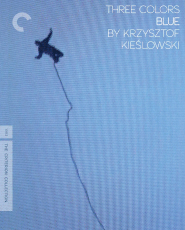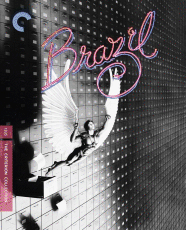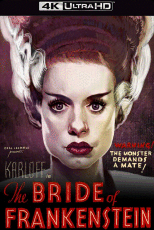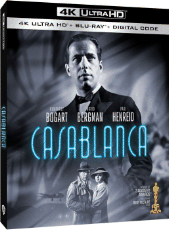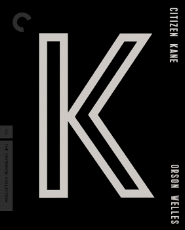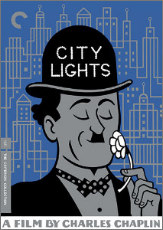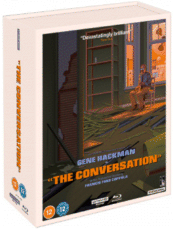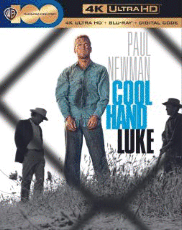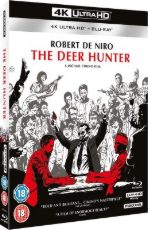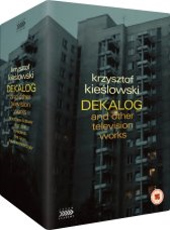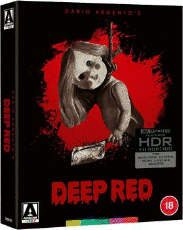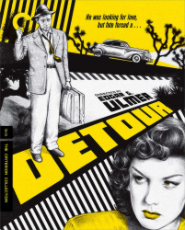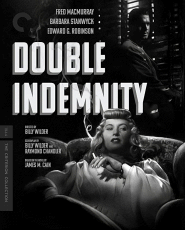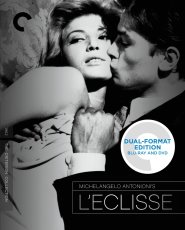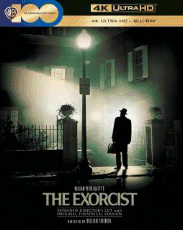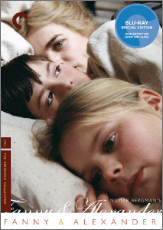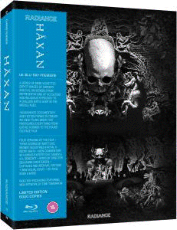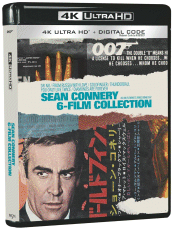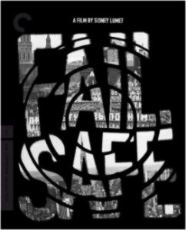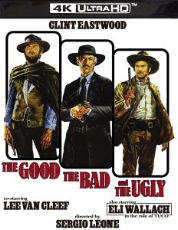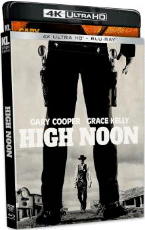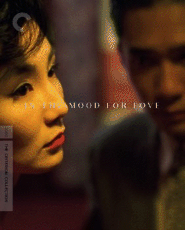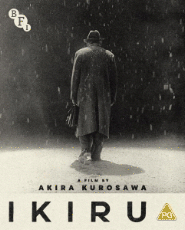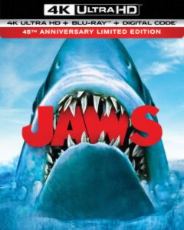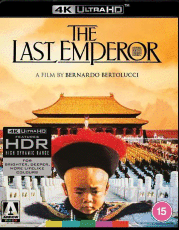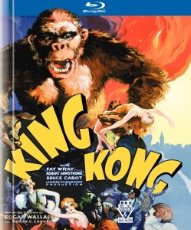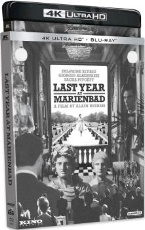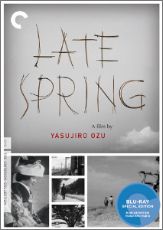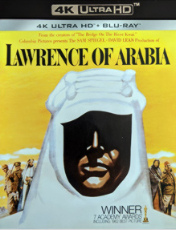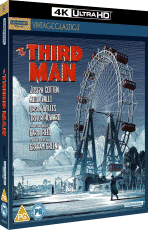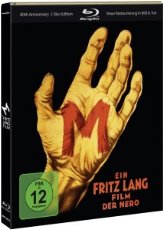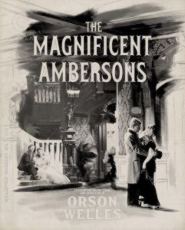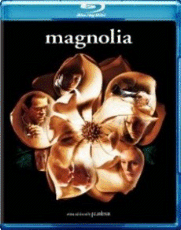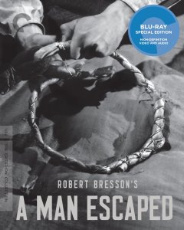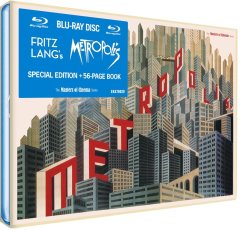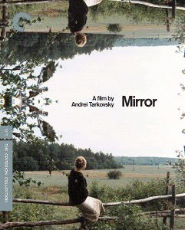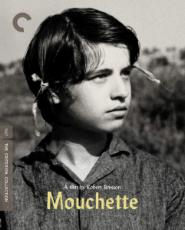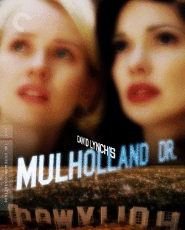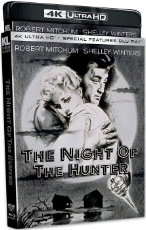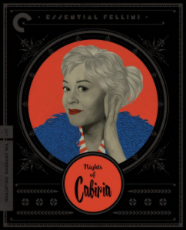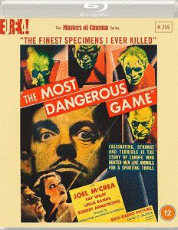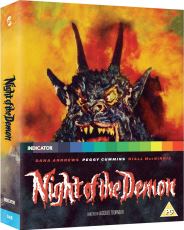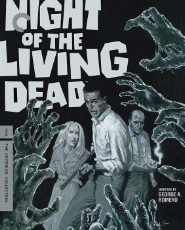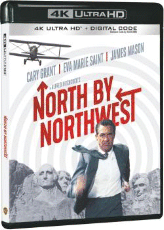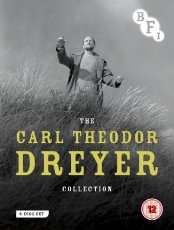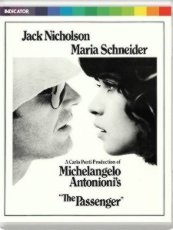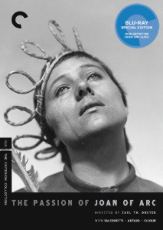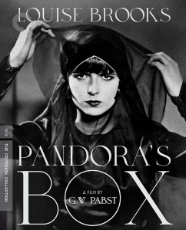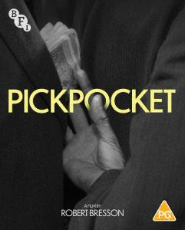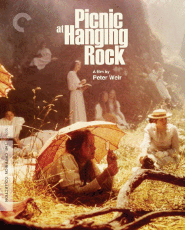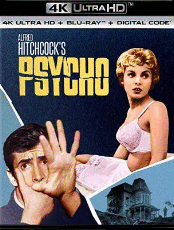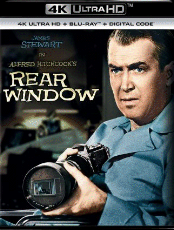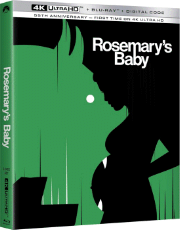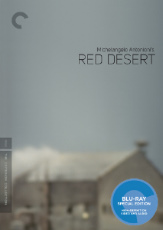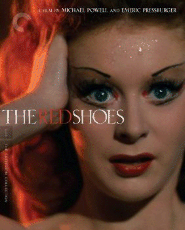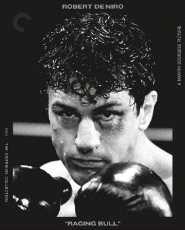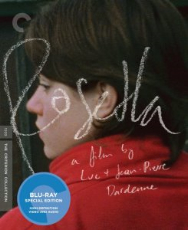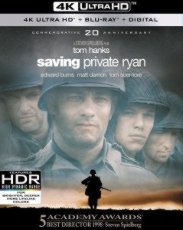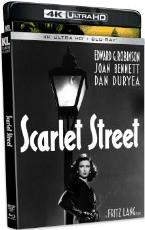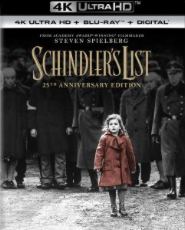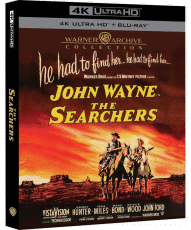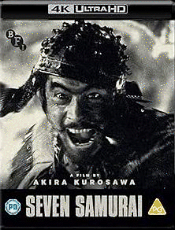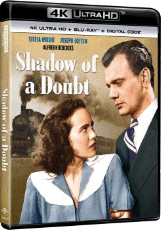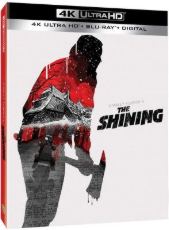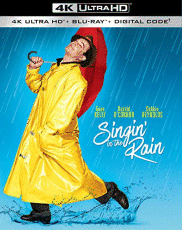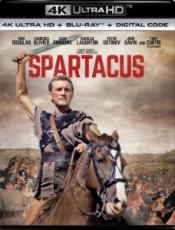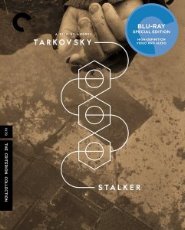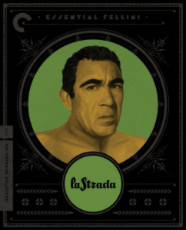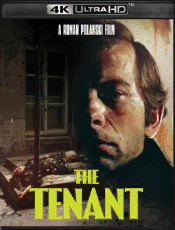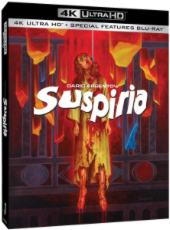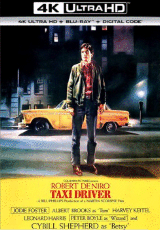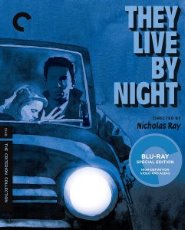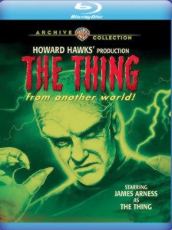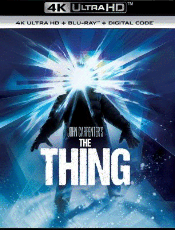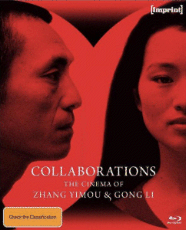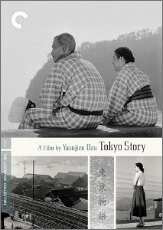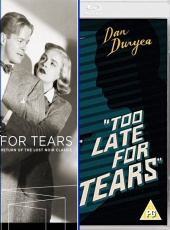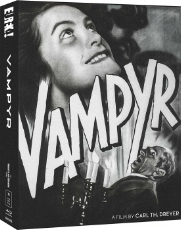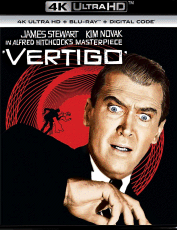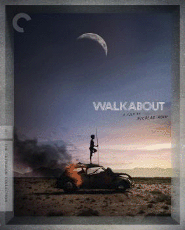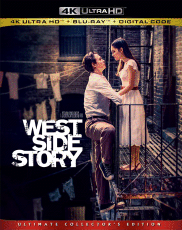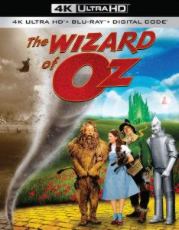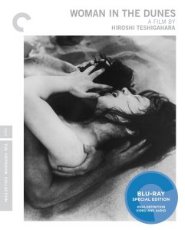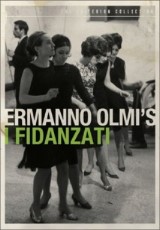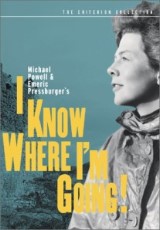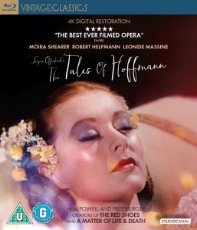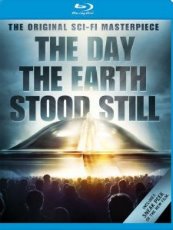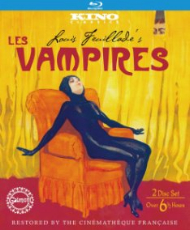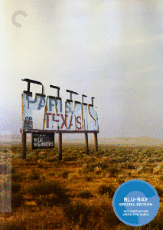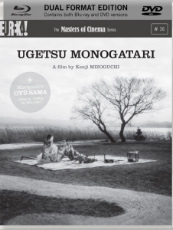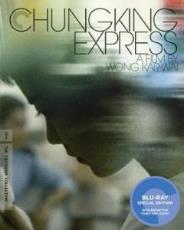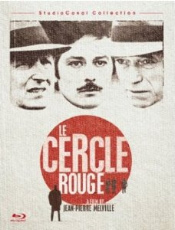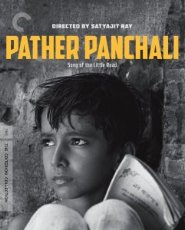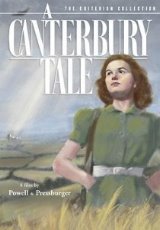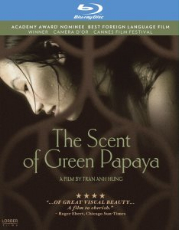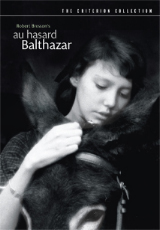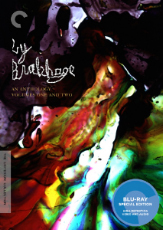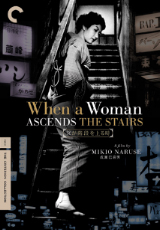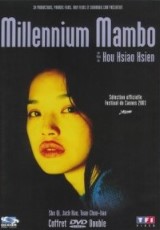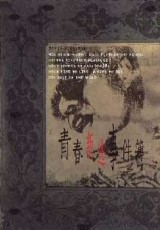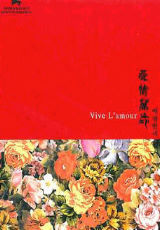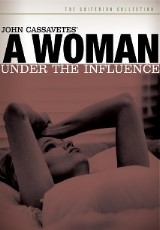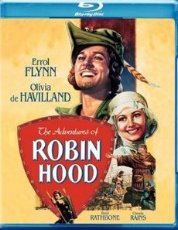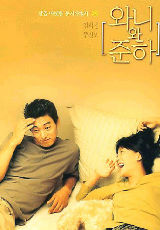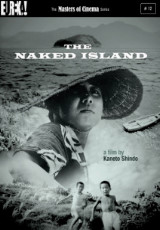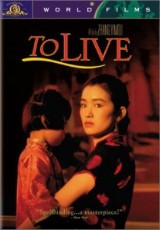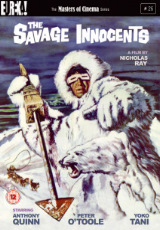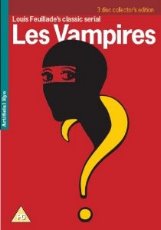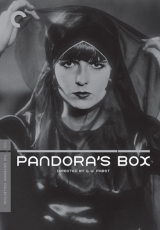|
An enormous, sincere thank you to our
phenomenal
Patreon
supporters! Your unshakable dedication
is the bedrock that keeps DVDBeaver
going - we’d be lost without you. Did
you know? Our patrons include a
director, writer, editor, and producer
with honors like Academy Awards for Best
Picture and Best Director, a Pulitzer
Prize-winning screenwriter, and a Golden
Globe-winning filmmaker, to name a few!
|
![]()
![]()

![]()
![]()
|
Search DVDBeaver |
S E A R C H D V D B e a v e r |

|
27 CHANGES - MAY 2025
• 8 1/2 Blu-ray replaced by After Hours 4K UHD • Kieslowski's Blue Blu-ray replaced by the 4K UHD • Brazil Blu-ray replaced by the 4K UHD • Cleo From 5 to 7 Blu-ray replaced by Cool Hand Luke 4K UHD • The Exorcist Blu-ray replaced by the 4K UHD • Goldfinger and From Russia With Love Blu-rays replaced by 4K UHDs • Fantasia Blu-ray replaced by the Häxan Blu-ray • High Noon Blu-ray replaced by the 4K UHD • It's a Wonderful Life 4K UHD replaced by BFI Ikiru Blu-ray • Invasion of the Body Snatchers Blu-ray replaced by 4K UHD • Johnny Guitar Blu-ray replaced by The Last Emperor 4K UHD • Wicked-Vision's The Most Dangerous Game Blu-ray replaced with Masters of Cinema Blu-ray • The Night of the Living Dead Blu-ray replaced by Criterion 4K UHD • The Night of the Hunter Blu-ray replaced by Kino 4K UHD • North By Northwest Blu-ray replaced by the 4K UHD • Bird With the Crystal Plumage 4K UHD replaced by the Pandora's Box Blu-ray • Picnic at Hanging Rock Blu-ray replaced by the 4K UHD • Rebecca Blu-ray replaced by Paramount's Rosemary's Baby 4K UHD • The Leopard Blu-ray replaced by The Third Man 4K UHD • A Woman on the Run Blu-ray replaced by Scarlet Street 4K UHD • The Searchers Blu-ray replaced by the 4K UHD • Seven Samurai Blu-ray replaced by the 4K UHD • Some Like It Hot 4K UHD replaced by The Conversation 4K UHD • Sunrise Blu-ray replaced by The Tenant 4K UHD • Walkabout Blu-ray replaced by Criterion 4K UHD • West Side Story Blu-ray replaced by 4K UHD
Change Log About the List VOTE
|
|
|
|
|
|
|
|
A girl mysteriously disappears on a yachting trip. While her lover and her best friend search for her across Italy, they begin an affair. Antonioni’s penetrating study of the idle upper class offers stinging observations on spiritual isolation and the many meanings of love. |
A make-or-break risk for MGM Studios that took six years to prepare before the first frame was shot. The epic film adaptation of a Biblical era classic becomes an emotionally exhausting masterpiece that eclipsed all other epics. |
Gregg Toland's pure camerawork gives a clinic on the most effective use of deep focus and Wyler's masterwork is further defined by eliciting several unselfish, yet commanding, performances. |
Simple in construction and dazzlingly rich in human insight, Bicycle Thieves embodied all the greatest strengths of the neorealist film movement in Italy - emotional clarity, social righteousness, and brutal honesty. |
Released in 1998 the Coen brothers film The Big Lebowski introduces us to characters that are stuck in the 70's and who are unable or unwilling to adapt to the 90's. The story continues with a focal backdrop of the unique community that has fashioned itself around the American pastime of... bowling. The Coens also found time in the films 118 minutes to pay homage to past film genre's including westerns and Busby Berkley musicals.. |
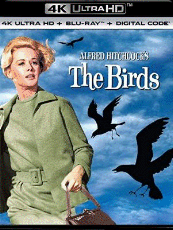 |
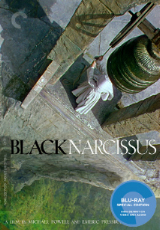 |
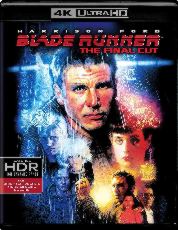 |
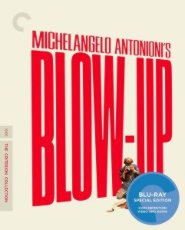 |
|
The human story begins in a San Francisco pet shop and culminates at the home in Bodega Bay, where the characters' sense of security is slowly eroded by the curious behaviour of the birds in the area. The deliberate, measured pace builds tension and mystery progressively in each scene. Watching it in 4K UHD adds further value to this, already essential set. The major themes include independence, loneliness, paranoia, credibility, bias.... |
All the elements of cinematic arts are perfectly fused in Powell and Pressburger’s fascinating study of the age-old conflict between the spirit and the flesh - astonishingly set against the grandeur of the snowcapped peaks of Kanchenjunga. |
One of the most visually influential science fiction films ever made, Blade Runner has a history as labyrinthine as any of its futuristic film noir sets. A fascinatingly contemplative detective story about a world-weary android-killer and his renegade prey, it has attracted a sizeable cult audience and retains a unique place in cinema. |
In 1966, Michelangelo Antonioni transplanted his existentialist ennui to the streets of swinging London for this international sensation, the Italian filmmaker’s first English-language feature. A countercultural masterpiece about the act of seeing and the art of image making, Blow-Up takes the form of a psychological mystery, starring David Hemmings as a fashion photographer who unknowingly captures a death on film after following two lovers in a park. |
|
|
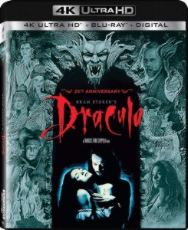 |
|
|
|
|
|
|
|
||
|
Kieslowski's elliptical time-lapses in Blue support a sober examination of one devastated woman who chooses to create a new, anonymous and wholly independent life for herself. |
Based on Bram Stoker's classic 1897 novel, this film from Francis Ford Coppola and screenwriter James Victor Hart offers a full-blooded portrait of the immortal Transylvanian vampire... Count Dracula (Gary Oldman) is motivated more by romance than by bloodlust, Anthony Hopkins is obsessed vampire hunter Van Helsing, while Keanu Reeves takes on the role of Jonathan Harker, and Tom Waits plays bug-eating Renfield. | Pitting the imagination of common man Sam Lowry (the brilliantly befuddled Jonathan Pryce) against the oppressive storm troopers of the Ministry of Information, Terry Gilliam's Brazil has come to be regarded as an anti-totalitarianism cautionary tale equal to the works of George Orwell, Aldous Huxley, and Kurt Vonnegut Jr.. |
This greatest of all Frankenstein movies begins during a raging thunderstorm. Warm and cozy inside their palatial villa, Lord Byron (Gavin Gordon), Percy Shelley (Douglas Walton), and Shelley's wife Mary (Elsa Lanchester) engage in morbidly sparkling conversation as to what happened next. |
Enigmatic propagandist subtexts defined by a brooding faux anti-hero and his past Parisian flame. It all takes place in his jazz-soaked Moroccan gin-joint giving birth to an iconic film where nearly half the world recognizes the key dialogue. |
|
|
|
|
|
||
|
Made when he was only 26, Welles masterpiece still unfurls like a dream and carries the viewer along the mysterious currents of time and memory to reach a mature (if ambiguous) conclusion: people are the sum of their contradictions, and can't be known easily. |
Charles Chaplin’s City Lights is so much more than a simple slapstick roughhouse stitched together with melodramatic sentimentality, like the films that many of his silent-era contemporaries would produce. This is it folks. |
A taut psychological thriller about Harry Caul, a paranoid surveillance expert played by Gene Hackman, who becomes obsessed with a cryptic conversation he records for a client. As Harry, a loner haunted by past jobs, analyzes the tapes, he suspects the couple he’s monitoring may be in danger, unraveling his own moral and emotional stability. With its moody jazz score, meticulous sound design, and claustrophobic visuals, the film explores themes of privacy, guilt, and alienation, culminating in a chilling twist that questions perception and truth. |
A gripping drama about Luke Jackson, a defiant drifter played by Paul Newman, sentenced to a chain gang for a petty crime. His unbreakable spirit and rebellious charm inspire fellow prisoners but clash with the brutal prison system’s oppressive bosses. Through daring escapes and tragic defiance, Luke becomes a symbol of resistance, blending gritty realism with mythic heroism in a searing critique of conformity and authority.. |
The Deer Hunter follows a group of Pennsylvania steelworkers from their blue-collar lives, hunting in the woods of the Alleghenies, to the hell of Southeast Asia during the Vietnam War. Academy Award winners Robert De Niro and Christopher Walken star in this unforgettable saga of friendship and courage. Experience the brutality of war and the depths of emotional strain on the human spirit in this extraordinarily powerful film classic.. |
Diagnosing moral ambiguities with simplistic and gripping realism is only scratching the surface of this probing and infinitely everlasting series of short films that bind themselves together on a ultimately fascinating premise of the scriptures and the tablets of Moses. |
|
|
|
|
|
|
|
|
|
|
|
|
|
|
|
|
Hitchcock's black-and-white original, featuring Anthony Perkins's haunting characterization of lonely motel keeper Norman Bates, has never been equaled. Bates presides over an out-of-the-way motel under the domineering spectre of his mother. The stage is set for this classic tale of horror--and one of the most famous scenes in film history. |
Rear Window: Taken from the Masterpiece Collection. The movie’s overall narrative form of scanning past windows in a courtyard seems to anticipate channel surfing, but it reflects the way one turns a radio knob, tuning in and out of frequencies while the station indicator moves horizontally or vertically along the dial. The same pattern is apparent in the beautifully calibrated camera movements as well as the brilliantly mixed and nuanced sound recording. |
Rosemary's Baby (1968), directed by Roman Polanski, is a chilling psychological horror film where young couple Rosemary and Guy Woodhouse move into a creepy New York apartment building. Rosemary, played by Mia Farrow, becomes pregnant after a disturbing dream, but her joy turns to paranoia as she suspects her eccentric neighbors and even Guy are part of a sinister occult conspiracy targeting her unborn child. The film masterfully blends suspense, gaslighting, and supernatural dread, culminating in a shocking revelation about the baby’s true nature, leaving Rosemary - and the audience - reeling in horror.. |
This provocative look at the spiritual desolation of the technological age—about a disaffected woman, brilliantly portrayed by Antonioni muse Monica Vitti, wandering through a bleak industrial landscape beset by power plants and environmental toxins, and tentatively flirting with her husband’s coworker, played by Richard Harris—continues to keep viewers spellbound. |
A glorious Technicolor pic that influenced generations of filmmakers, artists, and aspiring ballerinas, The Red Shoes intricately weaves backstage life with the thrill of performance. A young ballerina (Moira Shearer) is torn between two forces: the composer who loves her (Marius Goring), and the impresario determined to fashion her into a great dancer (Anton Walbrook). |
|
|
|
|
|
|
12 CHANGES - DECEMBER 2022
Krzysztof Kieślowski’s Blue Blu-ray replaced by Criterion 4K UHD (projected) Bride of Frankenstein 4K UHD added - Haxan Blu-ray removed Casablanca Blu-ray replaced by Warner 4K UHD Cléo from 5 to 7 Criterion Blu-ray added - The Princess Bride Blu-ray removed Double Indemnity Blu-ray replaced by Criterion 4K UHD In the Mood For Love Blu-ray replaced by Criterion 4K UHD Night of the Living Dead Blu-ray replaced by Criterion 4K UHD Raging Bull Criterion 4K UHD added - The Graduate Blu-ray removed Singin' in the Rain Blu-ray replaced by Warner 4K UHD Shadow of a Doubt 4K UHD added - A Matter of Life and Death Blu-ray removed Billy Wilder's Some Like It Hot 4K UHD added - Playtime Blu-ray removed Carl Theodor Dreyer's Vampyr Masters of Cinema Blu-ray added - Henri-George Clouzot's The Wages of Fear Blu-ray removed!
19 CHANGES - APRIL 2022
Paramount's The Ten Commandments 4K UHD added! Dario Argento's Bird With the Crystal Plumaged Blu-ray replaced by 4K UHD! A Brighter Summer Day Blu-ray removed Citizen Kane Blu-ray replaced by Criterion 4K UHD Days of Heaven Blu-ray removed Dario Argento's Deep Red 4K UHD added! Don't Look Now 4K UHD removed The Good, The Bad, and the Ugly 4K UHD added! In The Mood For Love 2012 Criterion Blu-ray replaced by 2021 Criterion Blu-ray Johnny Guitar Blu-ray replaced by Masters of Cinema Blu-ray Tarkovsky's Mirror Blu-ray replaced by Criterion Blu-ray Mouchette Blu-ray replaced by Criterion Blu-ray Mulholland Drive Blu-ray replaced by Criterion 4K UHD The Red Shoes Blu-ray replaced by Criterion 4K UHD Taxi Driver Blu-ray replaced by 4K UHD John Carpenter's The Thing 4K UHD added! Zhang Yimou's To Live Blu-ray added! VIY Blu-ray removed
Projected: Double Indemnity Blu-ray replaced by Criterion 4K UHD Singin' in the Rain Blu-ray replaced by Warner 4K UHD Shadow of a Doubt 4K UHD to be added!
12 CHANGES - NOVEMBER 2020
Criterion's Walkabout Blu-ray
replaced by Second Sight's UK Blu-ray
Criterion's Bigger Than Life Blu-ray
replaced by Universal's 4K UHD of
Alfred Hitchcock's The Birds
Universal Alfred Hitchcock's Vertigo
Blu-ray
replaced by Universal's 4K UHD
Universal Alfred Hitchcock's Rear Window
Blu-ray
replaced by Universal's 4K UHD
Criterion's DVD of Federico Fellini's Nights of Cabiria
replaced by their Blu-ray
Criterion's The Thin Red Line Blu-ray
replaced by Federico Fellini's La Strada Criterion
Blu-ray
Turbine (The Legacy Collection) Blu-ray
of Alfred Hitchcock's Psycho replaced by Universal's
4K UHD
Universal Steven Spielberg's Jaws
Blu-ray
replaced by Universal's 4K UHD
F.W. Murnau's City Girl Masters of Cinema
Blu-ray
replaced by Michael Cimino's The Deer Hunter on
4K UHD
Sony David Lean's Lawrence of Arabia
Blu-ray
replaced by Columbia Classics' 4K UHD
Masters of Cinema Der Golem Blu-ray
replaced by Criterion's Blu-ray
of Sidney Lumet's Fail-Safe
Warner Archive John Ford's She Wore a Yellow Ribbon
Blu-ray
replaced by Universal's 4K UHD of
Stanley Kubrick's Spartacus
14 CHANGES - March 2020
Criterion's The 400 Blows Blu-ray
replaced by Masters of Cinema's Blu-ray
of Der Golem
Lionsgate's Apocalypse Now Blu-ray
replaced by Lionsgate / Studio Canal 40th Anniversary
4K UHD
Criterion's The Double Life of Veronique
Blu-ray
replaced by Criterion's Blu-ray of
Haxan
BFI's Edge of the World Blu-ray
replaced by Studio Canal's Don't Look Now
4K UHD
Kino's The General Blu-ray
replaced by Sony's 4K UHD of Francis
Ford Coppola's Dracula (Bram Stoker's Dracula)
Olive's High Noon Blu-ray
replaced by Masters of Cinema's Blu-ray
Paramount's It's a Wonderful Life
Blu-ray
replaced by their 4K UHD
Criterion's Last Year at Marienbad
Blu-ray
replaced by Kino's Blu-ray
Universal's Psycho Blu-ray
replaced by Turbine's (The Legacy Collection)
Blu-ray
Masters of Cinema's Rocco and His Brothers
Blu-ray
replaced by Wicked-Vision's Blu-ray
of The Most Dangerous Game
Studio Canal's La Strada Blu-ray
replaced by Warner's 4K UHD of The
Shining
Synapse Film's Suspiria Blu-ray
replaced by their 4K UHD
Masters of Cinema's Nightmare Alley DVD replaced by Severin's
Blu-ray
of VIY
Warner's The Wizard of Oz Blu-ray
replaced by their 4K UHD
2 CHANGES - March 2019
Criterion's I Fidanzati DVD replaced by Universal's
Schindler's List 4K UHD
MGM's Raging Bull Blu-ray
replaced by Criterion's Detour Blu-ray
17 CHANGES - December 2018
Warner's 2001: A Space Odyssey
Blu-ray replaced by Warner's 2001: A
Space Odyssey 4K UHD
Criterion's Ikiru Blu-ray
replaced by Olive Signature's Invasion of the Body Snatchers
Blu-ray
Disney's Toy Story Blu-ray
replaced by Warner Archive's The Thing From Another World
Blu-ray
Artificial Eye's Andrei Rublev Blu-ray
replaced by Criterion's Andrei Rublev
Blu-ray
Kino's Les Vampires Blu-ray
replaced by Criterion's The Princess Bride
Blu-ray
Criterion's Pather Panchali Blu-ray
replaced by Criterion's A Matter of Life and Death
Blu-ray
Criterion's A Canterbury Tale DVD replaced by Criterion's
Night of the Living Dead Blu-ray
Criterion's Paris Texas Blu-ray
replaced by Indicator's The Passenger
Blu-ray
Optimum's Le Cercle Rouge Blu-ray
replaced by Synapse's Suspiria Blu-ray
20th Century Fox's The Day the Earth Stood Still
Blu-ray replaced by Universal's The
Big Lebowski 4K UHD
Studio Canal's The Tales of Hoffmann
Blu-ray
replaced by Paramount's Saving Private Ryan
4K UHD
Criterion's Chungking Express Blu-ray
replaced by Criterion's Blow-Up Blu-ray
Criterion's I Know Where I'm Going DVD replaced by
Criterion's The Magnificent Ambersons
Blu-ray
Masters of Cinema's Ugetsu Monogatori
Blu-ray
replaced by BFI's The Wages of Fear
Blu-ray
Masters of Cinema's The Passion of Joan of Arc
Blu-ray
replaced by Criterion's The Passion of Joan of Arc
Blu-ray
Warner's Blade Runner
Blu-ray replaced by Warner's Blade
Runner
4K UHD
Criterion's Diary of a Country Priest DVD replaced by
Indicator's Night of the Demon Blu-ray
1 CHANGES - August 2017
Hitchcock's Rebecca MGM Blu-ray
replaced by Criterion (4K restored) Blu-ray
5 CHANGES - July 2017
Au Hasard, Balthazar DVD removed - The Bird With The
Crystal Plumage Blu-ray added
Tarkovsky's Stalker DVD (AE) replaced by Criterion
Blu-ray
Taxi Driver Blu-ray replaced by
'4K Restored' Blu-ray
Criterion DVD of La Strada
replaced by Studio Canal Blu-ray
The Scent of Green Papaya Blu-ray
removed - Criterion's They Live By Night
Blu-ray added
6 CHANGES - October 2016
Warner (Poland) DVD of Dekalog replaced by Arrow
Blu-ray Le Mepris Blu-ray and The Spirit of the Beehive DVD Removed High Noon and Johnny Guitar - Olive Signature Blu-rays added Tarkovsky's Sacrifice (Kino) Blu-ray Removed and Warner's She Wore a Yellow Ribbon Blu-ray added Dream of Light DVD and The Discreet Charm of the Bourgeoisie Blu-ray removed Flicker Alley / Arrow Blu-rays of Woman on the Run and Too Late For Tears added
3 CHANGES - July 2016
Criterion DVD of Woman in the Dunes replaced by Criterion
Blu-ray
Criterion DVD of Andrei Rublev replaced by Artificial Eye
Blu-ray
Artificial Eye DVD of Mirror (Zerkalo) replaced by
Artificial Eye Blu-ray
13 CHANGES - March 2016
Removed Criterion Blu-rays of By
Brakhage, Children of Paradise, Criterion DVDs of
Winter Light, Le Samouraï and A Woman Ascends the
Stairs, Artificial Eye's DVD of Sátántangó
with
Criterion Blu-rays of A Brighter
Summer Day, Pather Panchali and The Graduate,
Studio Canal Blu-ray
of The Tales of Hoffmann, Masters of Cinema's
Blu-ray
of Rocco and His Brothers and Arrow's
Blu-ray
of Deep Red
Replaced:
Criterion DVD of L'Avventura replaced with Criterion
Blu-ray
Arrow Bicycle Thieves Blu-ray
replaced with the Criterion Blu-ray
Criterion DVD of L'Eclisse replaced with Criterion
Blu-ray
Criterion DVD of Ikiru replaced with Criterion
Blu-ray
Studio Canal Blu-ray of Mulholland
Drive replaced with Criterion Blu-ray
Criterion DVD of Ordet replaced with BFI Carl Theodor Dreyer
Collection Blu-ray
Criterion DVD of Pickpocket replaced with Criterion
Blu-ray
1 CHANGE - April 2014 Criterion Mouchette DVD replaced with the Artificial Eye Blu-ray
1 CHANGE - December 2013 Tokyo Story Blu-rays replaced with the Criterion Blu-ray
1 CHANGE - November 2013 City Lights Kinowelt Blu-ray replaced with the Criterion Blu-ray
1 CHANGE - October 2013 The Best Years of Our Lives DVD replaced with the Warner Blu-ray
1 CHANGE - March 2013 Gaumont A Man Escaped Blu-ray replaced with the Criterion Blu-ray
2 CHANGES - December 2012 Criterion Passion of Joan of Arc DVD replaced with the Masters of Cinema Blu-ray / Brazil DVD replaced with the Criterion Brazil Blu-ray
2 CHANGES - November 2012 Rear Window and Vertigo DVDs replaced with the Alfred Hitchcock: The Masterpiece Collection Blu-ray,
4 CHANGES - September 2012 TFI In the Mood For Love DVD replaced with Criterion Blu-ray, Columbia LE DVD of Lawrence of Arabia replaced by Sony Blu-ray, Studio Canal Discreet Charm of the Bourgeoisie (Blu-ray) replaces Criterion DVD, Criterion Children of Paradise (Blu-ray) replaces Criterion DVD.
5 CHANGES - August 2012 Rosetta (Blu-ray), Double Indemnity (Blu-ray) and Singing in the Rain (Blu-ray) replace the same film DVD versions. Millennium Mambo and Summer at Grandpa's DVDs were replaced by Jaws (Blu-ray) and Les Vampires (Blu-ray).
3 CHANGES - May 2012 REPLACED: Casablanca (Blu-ray) with 70th Anniversary (bare package Blu-ray) / Replaced BFI (Blu-ray) Late Spring with Criterion (Blu-ray), and replaced Criterion DVD of Ugetsu Monogatari (Blu-ray) with Masters of Cinema (Blu-ray).
1 CHANGE - February 2012 REPLACED: Rebecca (MGM Blu-ray)
1 CHANGE - January 2012 REPLACED: Fanny and Alexander (Criterion Blu-ray)
4 CHANGES - October 11' ADDED: Ben Hur (Warner Blu-ray), West Side Story (20th Century Fox Blu-ray), Kieslowski's Blue (Criterion Blu-ray) and replaced Metropolis OOP Steelbook with Standard (Masters of Cinema Blu-ray)
5 CHANGES - September 11' Citizen Kane (Warner Blu-ray), The Sacrifice (Kino Blu-ray), M (Universum Blu-ray), Sunrise (Masters of Cinema - Dual Format Blu-ray) and City Girl (Masters of Cinema - Dual Format Blu-ray) - all replacing older SD, inferior BD or new Dual-Format editions.
4 NEW ADDITIONS - May 11' Bicycle Thieves (Arrow Blu-ray), The Double Life of Veronique (Criterion Blu-ray), Taxi Driver (Sony Blu-ray) and The Scent of Green Papaya (Lorber Blu-ray).
13 NEW ADDITIONS - NOVEMBER 2010! (see below) |
|
ABOUT THE LIST: Firstly - Thank you to all the respondents who continue to give us their opinion to complete our list of 100 DISCs to take to a 'Desert Island'.
The current 100 selections were culled from over 700 contributors choices of 10 or less each plus 'voted' additions over the years. An edition must have had at least 6 votes for consideration. Disc attributes such as image/audio transfer and supplements (especially commentaries) rank very highly - in some circumstances almost comparable to film value. We allowed only individual feature film selections or shorter compilations (ex. By Brakhage and The Decalogue) - not boxsets - although you could choose one film from a boxset even if it was not available individually at this time. Two, three or more disc special editions of one film are still viable.
For the curious: We also received multiple (at least 3
votes each) for the following DVDs:
When completed this list should represent the most valuable 100 DISCs ever produced. We organized in alphabetical order (usual English title translation). With constant new releases and Blu-ray format upgrades this list will be in a state of flux - additions and deletion expected over time. NOTE: As usual DVDBeaver does not discriminate against region code, standard or format.
|
REMOVED MARCH 2019
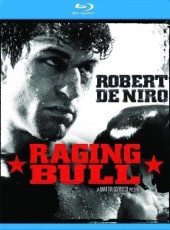 |
|
|
Ermanno Olmi’s masterful feature is the tender story of two Milanese fiancés. His deep humanism charges this moving depiction of ordinary men and women, and the pitfalls of the human heart. |
With breathtaking accuracy, Raging Bull ventures still further into the territory Scorsese has mapped in all his films - men and male values; in this case through the story of 1949 middleweight champion Jake La Motta. This film does more than make you think about masculinity, it makes you see it - in a way that's relevant to all men, not just Bronx boxers. |
REMOVED DECEMBER 2018
|
|
|
|
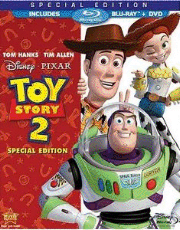 |
|
|
In Powell and Pressburger's stunningly photographed comedy, Wendy Hiller stars as a headstrong young woman stranded by stormy weather. She meets a handsome naval officer who threatens to thwart her carefully laid-out life plans to marry a rich lord. |
Michael Powell and Emeric Pressburger create a phantasmagoric marriage of cinema and opera in this one-of-a-kind take on a classic story. In Jacques Offenbach’s fantasy opera The Tales of Hoffmann, a poet dreams of three women—a mechanical performing doll, a bejeweled siren, and the consumptive daughter of a famous composer—all of whom break his heart in different ways. Powell and Pressburger’s feverishly romantic adaptation is a feast of music, dance, and visual effects, and one of the most exhilarating opera films ever produced. |
'Klaatu barada nikto'. Edmund H. North's intelligent script and Wise's smooth direction are serious without being solemn, while Bernard Herrmann's effectively alien-sounding score reinforces the atmosphere of strangeness and potential menace. A classic science fiction fable, its ambitious storyline conveying a surprising pacifist message. |
After the success of his Fantomas films, French director Louis Feuillade attempted to create the ultimate espionage serial, a ten-episode, seven-hour epic called Les Vampires. Edouard Mathe stars as Philippe Guerande, a crime-fighting journalist who attempts to penetrate the international ring of thieves known as The Vampires. Among the most fascinating of these sophisticated thieves and assassins is Irma Vep (Musidora), a black-clad seductress whose name is an anagram for ''vampre'' and who endures today as an icon of European cinema. |
Pixar are not simply making a great animated movies here... these films will last for generations of adults and children. Toy Story and Toy Story 2 deal with, at its most basic root, the universal interaction of children and toys - their imaginative communication and playful reflections and musings as adults. |
|
|
|
|
|
|
Wenders' collaboration with writer Sam Shepard is a master-stroke, wholly beneficial to both talents; if Wenders' previous film, The State of Things, was on the very limits of possibility, this one, through its final scenes, pushes the frontier three steps forward into new and sublime territory. |
Ugetsu offers a commentary on the delusions of lust and power and the folly of war. Renowned cinematographer Kazuo Miyagawa helps Mizoguchi seamlessly interweave the supernatural with reality, creating one of the most beautiful films of all time. |
Occasionally life offers essential moments that you only reflect on in memory - unaware, at the time, there significance in your personal growth. Chungking Express is filled with these rare occasions, so crucial that they are recognized by us the viewer, if not by the characters acting out their own narrative. |
Master thief Corey (Alain Delon) is fresh out of prison. But instead of toeing the line of law-abiding freedom, he finds his steps leading back to the shadowy world of crime, crossing those of a notorious escapee (Gian Maria Volonté) and alcoholic ex-cop (Yves Montand). As the unlikely trio plots a heist against impossible odds, their trail is pursued by a relentless inspector (Bourvil), and fate seals their destinies. |
|
|
|
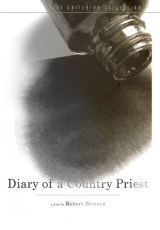 |
|
|
|
|||
|
Considered Calcutta-born director Satyajit Ray's masterpiece, "Pather Panchali" is the first film of his Apu Trilogy documenting the life and maturation of one young Indian boy. With themes rooted with universal appeal and understanding we see the pain and tragedy, familial spirit and hands on tutelage of one expressively insignificant individual in our world. Photographic realism so acute you can almost smell the rain soaked Bengali grass as the raga's of Ravi Shankar play in perfect balance with cultural coherence. Brilliant, intense, transcendent; cinema made with pure, honest love. |
Set amid the tumult of the Second World War, yet with a rhythm as delicate as a lullaby, the film follows three modern-day incarnations of Chaucer’s pilgrims -building to a majestic climax that ranks as one of the filmmaking duo’s finest achievements |
Through his diary entries, the suffering young man relays a crisis of faith that threatens to drive him away from the village and from God. With his fourth film, Robert Bresson began to implement his stylistic philosophy as a filmmaker, stripping away all inessential elements from his compositions, the dialogue and the music, exacting a purity of image and sound. |
Considered by some to be Akira Kurosawa’s greatest achievement, Ikiru presents the director at his most compassionate—affirming life through an exploration of a man’s death - a multifaceted look at a life through a prism of perspectives. |
REMOVED JULY 2017
|
|
|
|
In “The Scent of Green Papaya” Tran floats his camera through windows and over walls. He also brushed vibrant green foliage in some extremely elegant and painstakingly thought-out choreographed scenes. This transparent fluidity served as a constant backdrop to, and effectively put its blessing upon, Tran's clever blend of gentle classical and soothing traditional Vietnamese music reflecting the naturalistic purity of the surrounding scenery. |
A profound masterpiece from one of the most revered filmmakers in the history of cinema. Through Bresson’s unconventional approach to composition, sound, and narrative, this seemingly simple story becomes a moving parable of purity and transcendence. |
| REMOVED AS OF MARCH 2016: |
|
|
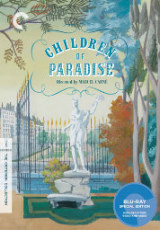 |
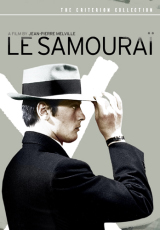 |
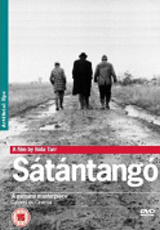 |
|
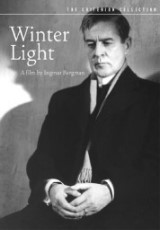 |
|
|
|
||||
|
Stan Brakhage challenges all taboos in his exploration of “birth, sex, death, and the search for God,” with 26 masterworks shorts in By Brakhage - a selection taken from the nearly 400 films he made over the past half century. |
Poetic realism reaches sublime heights in the ineffably witty tale of a woman loved by four able suitors. Deftly entwining theater, literature, music, and design, are resurrected 19th-century Paris. Children of Paradise is 'the bomb'. | In a career-defining performance, Alain Delon plays a contract killer with samurai instincts. A razor-sharp cocktail of 1940s American gangster cinema and 1960s French pop culture—with a liberal dose of Japanese lone-warrior mythology—maverick director Jean-Pierre Melville’s masterpiece Le Samouraï defines cool. | While Sátántangó, due to it being in black and white, Hungarian and running 7 hours, on paper may sound like the ultimate joke about art-house cinema, it is nothing less than a mesmerizing life changing cinematic experience. |
Japanese filmmaker Mikio Naruse's finest hour--a delicate, devastating study of a woman, Keiko, who works as a bar hostess in Tokyo's very modern postwar Ginza district, who entertains businessmen after work. Sly, resourceful, but trapped, Keiko comes to embody the conflicts and struggles of a woman trying to establish her independence in a male-dominated society. |
With Winter Light, master craftsman Ingmar Bergman explores the search for redemption in a meaningless existence. Beautifully photographed by Sven Nykvist, Winter Light is an unsettling look at the human craving for personal validation in a world seemingly abandoned by God. |
| REMOVED AS OF AUGUST 2012: |
|
|
|
|
Looking at the youthful friends around me, I find that their cycle and rhythm of "birth, age, illness and death' are moving several times faster than those of my generation. This is particularly true of young girls: like flowers, they are fading almost immediately upon blooming. |
Summer at Grandpa's from the Hou Boxset. The warmest of Hou's films - he, like many other directors, have focused on children and the intricacies of becoming educated in the working ways of the world... and its inhabitants (us). A positive examination of the human condition - there is even a hint of melodrama. For this reason some my dismiss it but I will continue to embrace it as a favorite. |
| REMOVED AS OF NOVEMBER 2010: |
|
|
|
|
|
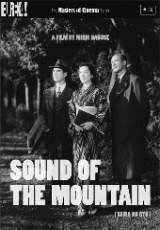 |
|
|
Animator Wanee and screenwriter Junah are in love and live together to give each other comfort. However, one day, the return of Wanee's stepbrother and her first love (Youngminn) recalls the fading memories of her puppy love. The queer coexistence of present and past love leads to an unexpected confusion in their minds... |
Filmed on the virtually deserted Setonaikai archipelago in south-east Japan, The Naked Island was made — in the words of its director — "as a 'cinematic poem' to try and capture the life of human beings struggling like ants against the forces of nature". Using one-tenth of the average budget, Shindo took one last impassioned risk to make this film. |
Zhang Yimou’s To Live (aka Lifetimes) is an exploratory masterpiece that transcends its political inferences and rests heavily on it’s real meaning; the importance of family. Yimou includes previous themes of survival, perseverance and the resilience of the human spirit also found in many of his other films. |
Sound of the Mountain draws on the concerns of Naruse’s earlier marriage films, including Repast (even the pairing of stars Hara and Uehara is reprised), to offer a profoundly moving account of the complex relationship that develops between an older man and a younger woman. |
Nicholas Ray's epic 1959 film about Eskimo life was unfairly victimized on release, censored at the UK cinema, and neglected by both TV and home video for decades. The Savage Innocents continued Ray's fascination with alternative lifestyles — examining the life of Eskimos and their remoteness from "civilized" values. It represents Ray's first and most ambitious attempt to break free from Hollywood and forge his own route. |
|
|
|
|
|
Vittorio De Sica’s neorealist masterpiece follows Umberto D., an elderly pensioner, as he struggles to make ends meet during Italy’s postwar economic boom. Umberto’s simple quest to fulfill the most fundamental human needs — food, shelter, companionship — is one of the most heartbreaking stories ever filmed and an essential classic of world cinema. |
Louis Feuillade's 1915 silent French masterpiece "Les Vampires" represents part of the 'primordial soup' from which all modern cinema evolved. Don't let the name fool you... there are no 'vampires' as in the 'blood-sucking undead' in this film. Les Vampires are a sinister gang plaguing Paris with their underworld activity including burglaries, decapitation of law enforcement officers, bombings, forgery and other unsavory dealings. |
Sensationally
modern, the film follows the downward spiral
of the fiery, brash, yet innocent showgirl
Lulu, whose sexual vivacity has a
devastating effect on everyone she comes in
contact with. Daring and stylish,
Pandora's Box is one of silent cinema's
great masterworks and a testament to Brooks'
dazzling individuality. |
![]()
![]()

![]()
DONATIONS Keep DVDBeaver alive and advertisement free:
CLICK PayPal logo to donate!
|
Gary Tooze
|
|
Thank You!


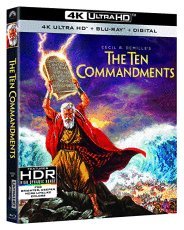
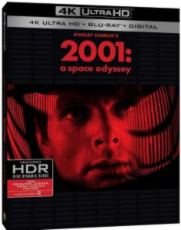
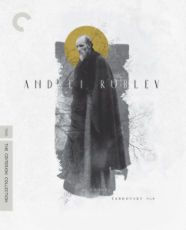
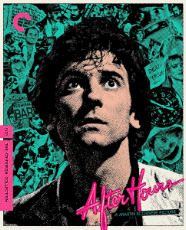
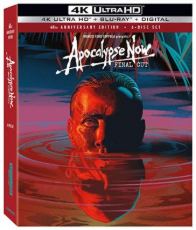
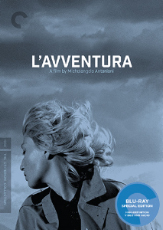
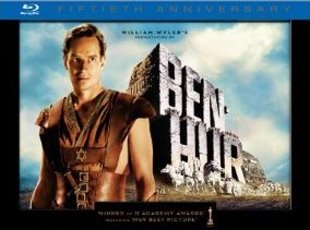
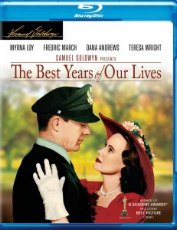
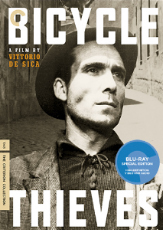
.jpg)
